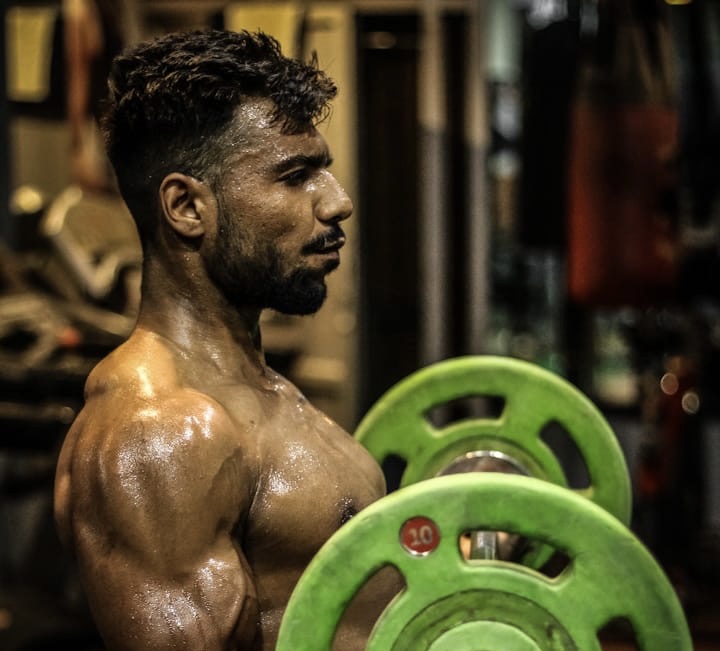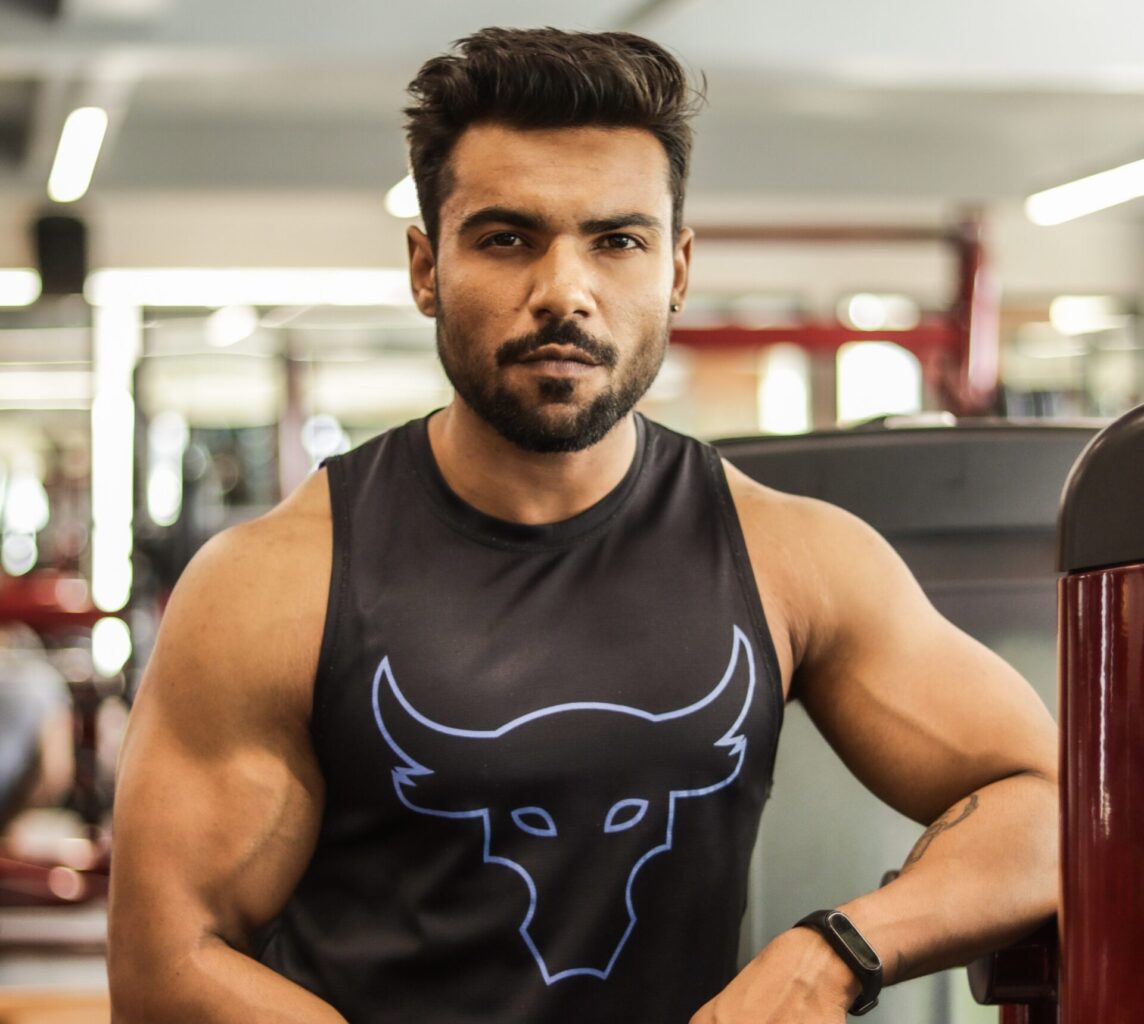Based in Delhi, Rayansh Thakur is the first runner-up under Men’s Physique category in Delhi and is also a certified nutritionist and fitness trainer. Having completed his sports nutrition course from K11 Fitness Academy, his aim is to train and bring awareness about effective exercises and the importance of a quality diet.
In this exclusive interview, Rayansh speaks about his journey as an athlete, important lessons learned at K11 Fitness Academy, importance of mental fitness, overcoming challenges and his future goals.
Q 1) When were you first introduced to fitness and as an athlete, which sport did you compete in?
I was a professional photographer, but I seem to remember being active in sports in high school, so it came naturally to me. My desire to inspire people to make healthy lifestyle choices led me to quit my career as a professional photographer to become a professional coach & nutritionist. After facing many lows, I eventually found my love and enthusiasm for fitness again, and I prepared to compete in men’s physique and classic physique bodybuilding competitions like Mr. Delhi, where I placed first runner-up in the men’s physique category. I’m now getting ready for this year’s bodybuilding competitions like Sheru Classic, Muscle Mania etc.
Q 2) What are some of the most important lessons that you have learnt in the Sports Nutrition Course from K11 Fitness Academy?
I am learning a lot currently but the most significant lessons that I learnt from K-11 academy are – What works for one person won’t necessarily work for another.
I’ve seen clients sign up for a four-week programme or a three-month gym membership to learn how to workout or eat a certain way simply to give it a try since their coworkers or friends may transform themselves or they notice some significant improvements in four weeks. This is not true, though, as every body has distinct needs depending on genetics, hormones, etc., so just because something worked for someone else doesn’t mean it will work for you. Instead, as a coach, we should customize plans and meals for each client because “Individual needs should come before trends every time”.
Just because a food is “healthy” doesn’t mean it’s good for everyone.
One of my vegetarian clients struggled a bit with recovering. His testing revealed an increased consumption of iron and an apparent intolerance to chickpeas. Fortunately, the client’s recovery improved once we suggested quinoa as a replacement for chickpeas as a protein and carbohydrate source. The moral of this story is not that chickpeas are bad. They include some protein, some carbs, and a range of vitamins and minerals. They are nutritious foods. However, merely because a dish is considered as “healthy” or even a “superfood” does not mean that it is best for your client. especially if it is consumed excessively.
Don’t assume anything.
Appearances can be deceptive. Just because someone looks fit because he/she’s in sports doesn’t mean they have advanced nutrition skills. Instead of making assumptions or conclusions about where your client is at, ask questions. Listen. Observe. Seek to understand rather than to prove yourself right.
These three lessons, along with many others, have influenced every innovation I’ve tried to implement in fitness and nutrition.
Q 3) While physical fitness and nutrition is undoubtedly important, what are your views on mental fitness? How can it be improved?
Mental health/Fitness refers to how people think, feel, and act as they face life’s situation. It influences the way individuals look at themselves, their lives, and others in their lives. Like physical health, mental health is essential at every stage of life, and I would say they are co-related.
Physical fitness regime like aerobics, jogging, swimming, cycling, walking, gardening, and dancing etc helps in improving mental health & fitness because regular exercise has a profound positive impact on depression, anxiety, and ADHD. It helps relieve stress, improves memory, supports sleep cycle, and boosts your overall mood. You also learn discipline and train your mind to be calm. Physical activity kicks up endorphin levels, the body’s famous “feel good” chemical signaling you to be euphoric and feel content.
Also read: Winning the India Master Athletic Meet was exhilarating: Athlete Bernadine Kalwachwalla
Q 4) What are some of the biggest challenges that you have faced as an athlete, fitness expert and certified nutritionist? How did you overcome them?
Athletes and fitness experts in this era face numerous challenges and one such is about meeting everyone’s demands. The pressure is apparent since everyone has a goal but less patience to accomplish it. We athletes are often pulled in too many directions at the same time. The phenomenon of overload is quite real.
The best way to cope with overload is to avoid additional demands. I usually turn off my phone and mentally or physically distance myself from whatever is causing the feeling of overload. Short periods of relaxation and reflection might help you regain control of your life and performance.
To also avoid overload, consider your priorities first and how many more commitments can you make? Don’t get caught up in modern management jargon like multitasking.

Q 5) What do you think is the biggest problem amongst younger generations that is leading to problems such as obesity and mental health issues?
There isn’t just one, but many problems faced by the younger generation today, some of which are:-
Alcohol and drug use
Alcohol and cigarettes are considered cool and stylish among youngsters today. They tend to become inspired by movie stars and ultimately get addicted to it. The same goes with drugs. It leads to mental health issues like paranoia, depression, anxiety, aggression, hallucinations, and many other problems.
Materialism
Today’s youth grow up in a materialistic society. The concepts of ‘need’ and ‘desire’ have gone. They want things, especially if their friends have gotten something they enjoy. According to study, materialistic people are more likely to be depressed and dissatisfied with life, which unknowingly causes mental health issues that can even lead to obesity in some people due to emotional eating disorder, which we often do when stressed.
Motivation
The younger generation has lost its motivation and often lacks the confidence to move on. They have become socially distant in their virtual worlds, which sometimes causes tension and comparison with others. These factors contribute to significant mental health concerns in youth, which can be effectively addressed with regular exercise and meditation.
Q 6) What are your future goals and how do you plan to achieve them?
I want to participate in various national and International Competitions under the Men’s physique category in the coming years. Apart from that, I am working towards building a gym, a kind of one-stop fitness center providing all training forms.














